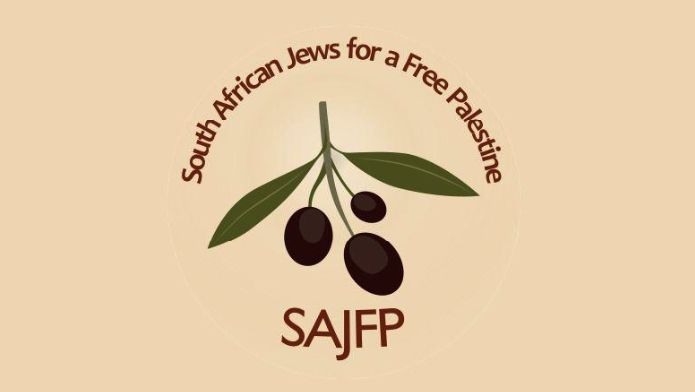Statement by South African Jews for a Free Palestine (SAJFP)
‘I watched as hunger robbed people of their dignity. Some huddled in silence, too weak to speak or cry out. Others were delirious, mumbling incoherently or calling out for loved ones they would never see again. Then came the final moments for some. Their breath grew shallow, their bodies still. They didn’t die with any great commotion, just a quiet surrender, as if their bodies had finally given up. The hollow, lifeless look in their eyes was a constant reminder of what awaited the rest of us. It was not an illness that killed them. It was starvation. A cruel, drawn-out death that consumed them piece by piece.’
These are the words of Clement Moeletsi, an artisanal miner who was rescued from Shaft 11 of the abandoned Stilfontein mine in the North West province of South Africa in early December. Since November 2023, we have been raising our voices about starvation as a weapon of war deployed by Israel in its genocidal war against the Palestinian people. Hardly did we imagine that a year later we would have to call on our own government to stop deliberately starving people here in our country.
Yet, as Stilfontein community members, news reports, and Clement Moeletsi’s detailed testimony makes abundantly clear, the death of 109 (and possibly more) miners is a direct consequence of the South African Police Service’s (SAPS) Operation Vala Umgodi (‘plug the hole’). Vala Umgodi refers to the SAPS’s ruthless action of closing all entrances and exits to the Stilfontein mine in August 2024, thereby cutting off the lifeline for over a thousand artisanal miners eking out a living under extremely harsh conditions two kilometres deep underground.
We are relieved that the Gauteng High Court has finally recognised the critical situation and the State will begin a rescue operation, after legal action by Ms Zinzi Tom, the High Court Applicant, to save those still trapped under ground as soon as possible. We note however that this should not have taken a months-long campaign by miners’ relatives and grassroots solidarity groups; the thankless work of the community relief and rescue team; Khuma Concerned Residents; Mining Affected Communities United in Action (MACUA); Women affected by Mining United in Action (WAMUA); Stilfontein Solidarity Committee; General Industries Workers Union of South Africa (GIWUSA); South African National Civics Organisation (SANCO); Visual Intifada; and Lawyers for Human Rights (LHR) whose Constitutional Court case is ongoing. We are grateful that these collective actions have mobilised to get the state to start a rescue operation. Please continue to support the Backabuddy for Emergency Relief to Trapped Miners to provide direct aid to the Stilfontein miners, families and community.
The Court recognises the immensity and urgency of the miners’ situation and orders the state to begin the rescue operation to save those still trapped underground as soon as possible. We express deep relief for the surviving miners and their families for this judgement and the judge’s order regarding the provision of food relief and other measures to make sure that not one more person has to lose their lives due to the state’s deliberate denial of vital necessities.
Yet, while we applaud the Court’s emphasis on every person’s right to life and dignity, we must pause and express our condemnation of the acts and circumstances that led to this harrowing situation in the first place. It is shameful that our mainstream media has neglected to report on Stilfontein for many months, and when it did, it did not challenge – and often actively spread – false narratives about artisanal mining and furthered the scapegoating of immigrants. The criminalisation of immigrants is especially ironic given that people from across Southern Africa have been working and dying in our mines for more than a century; South Africa’s industrial wealth has largely been built on the underpaid labour provided by their bodies. It is even more of a disgrace that thirty years after the demise of white minority rule, members of the democratic government are emboldened to refer to poor workers struggling to survive with the most coarse and dehumanising language imaginable. After months of backing Operation Vala Umgodi which entailed the deliberate starvation of miners, Minister in the Presidency Khumbudzo Ntshavheni, in clear violation of their right to life, stated that the government will not assist those trapped underground. Infamously, and in chilling resonance with the worst racist tropes of the apartheid era, she declared: ‘We are not sending help to criminals. We are going to smoke them out.’
It is no coincidence that twelve years after Marikana, the mass killing of poor Black life is once again taking place in the mining sector. South Africa’s history of racialised exploitation in the mines traverses colonial borders and the periods of settler colonialism, apartheid and post-apartheid. Instead of criminalising people who risk everything to provide for their families, then, the government would do well to address the root causes of such desperation. It is all too easy to label as criminals those who have no choice but to participate in illicit mining. More challenging but more crucial would be to unravel the threads of corruption operating in much higher echelons of both formal and illicit mining and tackle their joint super-exploitation of poor black workers.
The fact that this is not the first time that we call on the South African government to challenge the greedy interests of mining companies shows that the struggles of the poor and dehumanised victims of extractivism and war are connected. We commend and have always supported the government’s case against Israel at the International Court of Justice (ICJ) and hope that justice will ultimately be served through the international court system. Nevertheless, together with other Palestinian solidarity organisations, we demand that the government sanction Israel and stop exporting coal to Israel. Glencore – a company complicit in deadly and fraudulent extractivism in the Democratic Republic of Congo – is the largest company in South Africa selling coal to Israel, and burning coal produces 22% percent of Israel’s energy; energy driving its unchecked war machine. As the Palestinian New Federation of Trade Unions (PNFTU) notes in a recent statement, the economic and military ties between apartheid South Africa and apartheid Israel have outlasted the fall of minority rule and, ‘through the ongoing coal exports by Glencore to Israel, South Africa’s mines are still today fuelling Israel’s ongoing genocide and crimes against our people.’
As Jews whose trauma has been consistently misused by the Zionist state and self-appointed local leaders of the Jewish community, among others, we are obliged to stand with the Palestinian people and against their ongoing annihilation and dispossession of their homeland. Complementing this obligation, one of the core values of SAJFP’s activism is the Judaic principle of doykeit or ‘hereness,’ according to which we must make home wherever we are, as Jews have done for centuries. As such, we are called to help repair the places we find ourselves in by opposing all forms of exploitation and oppression. It is in the spirit of both of these obligations that we echo the PTFNU and call for broad solidarity with the trapped miners and their families: ‘We are acutely aware that denying access to food, water, medicine and basic supplies is always wrong, whoever they are, wherever they are, whether its citizens or migrant workers desperately trying to survive.’
We stand in deep solidarity with the miners, their families, communities and loved ones, and the people of Khuma whose livelihoods depend on the economy built around artisanal mining. In Gaza or in Stilfontein, no person is illegal.
Press inquiries: +27 78 053 9882 (WhatsApp)

